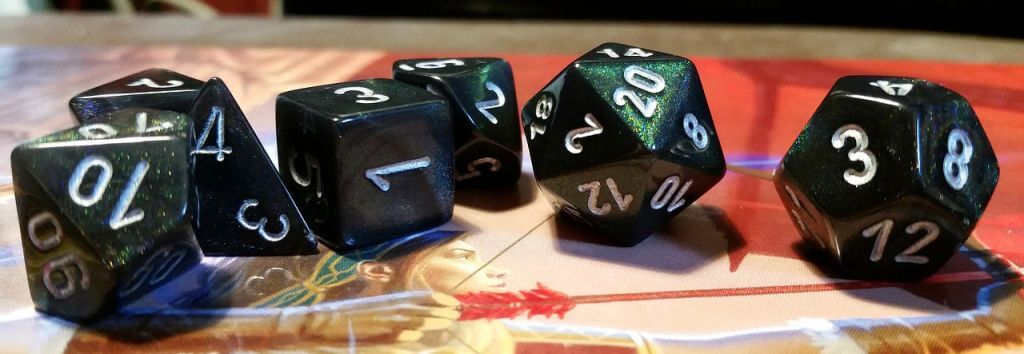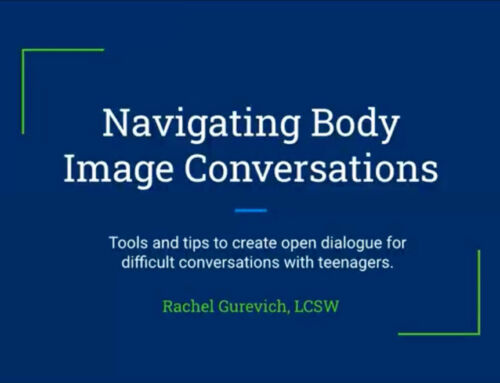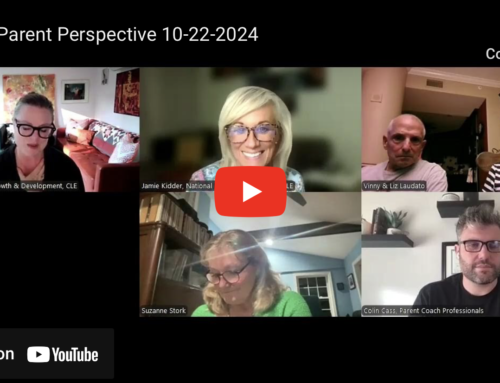By Scott Allen, Psy.D., Director of Psychological Services, CLE Austin
As a kid of the 80’s, video games were a big part of my childhood. I was always interested in having the newest game system and trying out the hottest game. They were a refuge for me after a rough day at school, and a way for me to relieve the frustrations of everyday life. Anyone who has defeated a particularly difficult boss can attest to the senses of accomplishment and pride that accompany this amazing feat. At that point in my life, gaming was a relatively solitary activity that I used to help me cope with the stresses of each day.
There was another side of gaming that I knew about but did not explore in my youth. I had a small group of friends who would talk about playing D&D (Dungeons and Dragons). I thought I would somehow be considered uncool after playing D&D, so I dismissed offers to play the game. As a kid, I was a “closeted geek.” Boy, did I miss out!
Flash forward to my time at CLE. In our Austin center, I have placed great efforts in making our social programming interesting and fun for our students. My approach to teaching is mostly interest-based, meaning that I feel that students learn best when they are truly engaged and enjoying their activities. One of my colleagues introduced the idea of tabletop RPG’s—the broader base of games that include D&D and other games requiring participants to take on the roles of character—as social-teaching tools. I overheard her leading some games in the lounge, witnessed the student engagement, and took notice of what a great social opportunities these games are.
With my support, my colleague led several tabletop gaming groups. For anyone who hasn’t played, tabletop gaming has a few general facets:
Players assume a role of a character that is not themselves (though they may integrate aspects of themselves into their role). Players stay “in character” during the game and interact with each other as their characters would.
Games are loosely structured, giving players quite a bit of leeway in making decisions in the game.
There is a Game Master or GM (a Dungeon Master in D&D) who leads the adventure. GM’s can keep the game very structured, leading the group down a preset adventure or can be very unstructured, with a more improv-based approach.
There is opportunity for adventuring parties to coordinate and discuss plans for the game. The best games have characters with varying skill sets, allowing the party to take advantage of each character’s strengths.
Despite all of the planning the party may perform, there is an element of chance in the game usually in the form of a die roll. When characters use their skills they roll their dice to determine success or failure (called a check in gaming terms).
There are usually elements of exploration, interaction with non-playable characters, and battle in tabletop RPG’s.
In my experience as a social-skills instructor, it is hard to think of approaches that are more effective toward teaching social interaction in a completely nonthreatening way. Our students love this approach and we have seen evidence of the generalization of skills outside of the gaming setting. Tabletop gaming is also a great way to work on executive functioning components, such as planning, prioritizing, flexibility, and emotional control. Below are a few of the many skill areas that can be addressed using tabletop gaming.
Perspective Taking: It’s hard to think of a time in the game when you do not have to take another person’s perspective, as you are acting out a character the entire time. Players also often interact with non-playable characters (NPC’s), often requiring them to understand how to gear communication in order to reach an optimal outcome.
Flexibility: Anything can happen in tabletop games, and parties much adjust quickly to rapidly changing conditions in the game. One important concept in tabletop gaming is called the “hidden third option.” Often in the game (and in life), we encounter situations when we seemingly only have a limited number of choices. In a tabletop game, you might run into a situation where you might fight or avoid a rat. The hidden third option might be to use some cheese to lure the rat to distract a bigger enemy allowing you to slip by.
Teamwork/Cooperation: The best tabletop adventures require a wide range of characters with different skill sets. When presented with a strength-based challenge, the team needs to have a fighter or a warrior in order to be most effective. However, a mental challenge might require a wizard or a cleric. In addition, parties might encounter puzzles or team-based challenges that require players to work as a group. When one player struggles, the team must step in to help that player or the entire party might suffer a grim consequence like a Beholder wiping the party off of the face of the world.
Planning: Although much of the game is done on the fly, skilled parties often plan sequences of actions that depend on the success of prior actions. Sequencing and coordination of actions is very important in battle situations or puzzle solving during the game.
Communication: Non-playable characters may respond differently to players’ characters based not only on what they say but how they say it. For example, if a player demands an item in a rude way, the NPC might respond in kind, refusing to give the item, destroying it, or fighting the party. This allows players to have “real” opportunities to work on communication skills without having to deal with the consequences of an embarrassing interaction in real life.
My experience playing these games at CLE led me to seek out others who enjoy tabletop games in my outside life. I have joined a group of tabletop gamers and have learned to embrace my inner geek in a way that I never have before.
 Unfortunately, my colleague left CLE a couple of years ago, and we were in need of GM’s. How did we handle that? First, I gave myself a crash course in how to run a tabletop gaming group. I have been able to run games with premade stories and alter the games based on the needs and goals of the participants. For example, one week I set up a situation where the party needed to utter the magic word, “help” in order to move forward in the game. The reason I added this element to the story was because a student was struggling with asking for help in their everyday life. I am currently running a brand-new group with students playing as superheroes. This will be my first time generating and executing a completely original story.
Unfortunately, my colleague left CLE a couple of years ago, and we were in need of GM’s. How did we handle that? First, I gave myself a crash course in how to run a tabletop gaming group. I have been able to run games with premade stories and alter the games based on the needs and goals of the participants. For example, one week I set up a situation where the party needed to utter the magic word, “help” in order to move forward in the game. The reason I added this element to the story was because a student was struggling with asking for help in their everyday life. I am currently running a brand-new group with students playing as superheroes. This will be my first time generating and executing a completely original story.
Second, we have had CLE students volunteer to run tabletop gaming groups with staff assistance. We currently have a student who has made his own tabletop gaming system based on a popular video game. It has been great to see this student lead the game, ask the group for feedback, and integrate the feedback into the game.
Learning how to socialize can be seen as boring or useless for many of our students, but the social skills they learn are among the most critical in terms of job success and building lifelong relationships. It’s often difficult to talk about areas of life that are challenging, and socialization is often challenging for our student population. The use of interest-based techniques, such as tabletop gaming, helps to take the “edge” off of social training, making it fun for both participants and instructors.


 Unfortunately, my colleague left CLE a couple of years ago, and we were in need of GM’s. How did we handle that? First, I gave myself a crash course in how to run a tabletop gaming group. I have been able to run games with premade stories and alter the games based on the needs and goals of the participants. For example, one week I set up a situation where the party needed to utter the magic word, “help” in order to move forward in the game. The reason I added this element to the story was because a student was struggling with asking for help in their everyday life. I am currently running a brand-new group with students playing as superheroes. This will be my first time generating and executing a completely original story.
Unfortunately, my colleague left CLE a couple of years ago, and we were in need of GM’s. How did we handle that? First, I gave myself a crash course in how to run a tabletop gaming group. I have been able to run games with premade stories and alter the games based on the needs and goals of the participants. For example, one week I set up a situation where the party needed to utter the magic word, “help” in order to move forward in the game. The reason I added this element to the story was because a student was struggling with asking for help in their everyday life. I am currently running a brand-new group with students playing as superheroes. This will be my first time generating and executing a completely original story.







